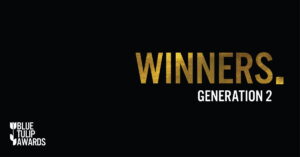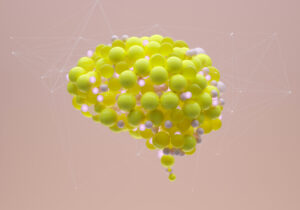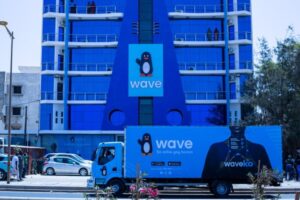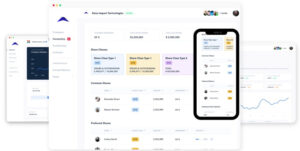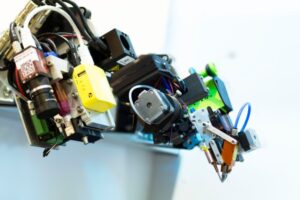With the COVID-19 pandemic, cleanliness and hygiene at homes and workplaces took on a whole new level of importance. With the virus still lurking around and newer variants popping their heads, the question on everyone’s mind seems to be how clean is really clean? Bengaluru-based has a possible answer to this.
Founded in 2017 by Lav Agarwal, Abhishek Mishra, and Stella Aw Agarwal, SmartClean Technologies Pvt. Ltd is a B2B (business-to-business) proptech startup, building IoT (Internet of Things) and AI (Artificial Intelligence)-powered intelligent cleaning and hygiene management systems to change how property and facility managers monitor cleanliness in building spaces, objectively measure it, and standardise operations for improved health and hygiene standards at global level.
SmartClean, which is among YS’s Tech50 list of most promising early stage startups, enables on-demand cleaning, which can increase the productivity of a cleaning team and also result in saving the total manpower needed to run a facility’s cleaning operations. Its platform gives managers better visibility and drives accountability for better cleaning and hygiene standards.
“We realised that building a full-fledged service robot is hard and not much practical from cost perspectives in emerging economies such as India. Plus there is no data available on cleanliness standards. Everything was a blank slate,” says SmartClean Co-founder Lav.
The startup has already raised $4.7 million from investors such as Seeds Capital, AIM Smart City, AIRmaker, among others. It has over 50 clients, and operates in Singapore, Hong Kong, Dubai, and Mumbai. Some of its customers are JLL, Sodexo, CBRE, ISS, JTC, Fraser Property, Mount Elizabeth Hospitals, Honeywell, Johnson Control, L&T, among others.
“SmartClean has grown 4x in 2020-21 in spite of the pandemic and hit a USD 1 Mn ARR having launched commercially in 2019. We have built our presence in 10 countries with international partnership in 8 countries .We are on the path to hit a 6x growth in 2022 on track to hit USD 6 Mn ARR,” adds Lav.
The early days and growth so far
In early 2017 Lav Agarwal and Abhishek Mishra were pursuing their PhD at NTU and NUS, Singapore respectively, and were working in a robotics startup for service industries.
Lav and Stella had met in late 2016 where she discussed day-to-day issues and the problems that she faced while running a cleaning company (Spotless) in Singapore back in 2012. During one such discussion, they realised the potential for digital transformation in the cleaning industry and the absence of tech adoption. After extensive research, Lav, Abhishek, and Stella Aw co-founded SmartClean in 2017.
The team started out with building the sensor base ecosystem incorporating different sensors for monitoring different aspects of cleanliness. Starting with a simple IoT solution to monitor cleanliness in washrooms, it has now evolved into a complete SaaS (software-as-a-service) ecosystem covering all of the other aspects of cleanliness and hygiene measurement.
The first milestone came in 2019, when after two years of research and development (R&D) efforts, product development and validation, they started launching the commercial solution.
“JLL, the property management company, actually adopted the solution for a portfolio of buildings in India, getting our hopes pinned on making it a much more scalable solution,” Lav reminisces.
Explaining the ‘Clean Score”
Last year, the startup also launched a project called Clean Score, with the long term vision of SmartClean becoming the global standard of cleaning.
According to the startup, every building and every facility could have one Clean Score based on four plus years of data collected in terms of cleanliness and hygiene data from different kinds of facilities, ranging from hospital malls, offices, airports, bus stands, and metro stations.
“Cleaning means different for different kinds of locations, making cleaning standards different everywhere,” says Lav.
The team is thus creating different parameters and metrics wherein all the collected data points can be segregated. These data points can be like — ‘when was the last cleaning done’, ‘how comprehensive is the cleaning regime’, etc. These are then evaluated and a cleaning score is generated.
“Now this cleaning score will be different for different buildings. For example a Clean Score of 9 is different for a residential building as compared to the same score for an industrial building,” explains Lav.
Challenges and competition
SmartClean’s target market segment overlaps spent in smart building and smart cleaning automation space giving it a total TAM upward of 50 billion USD.
One of the biggest challenges for SmartClean was to get initial funding from the investors being a hardware driven product solution.
“There were physical electronic sensors initially which needed to be checked for quality, pricing, and shipping and logistics was a challenge as we were serving almost 10 geographies,” Lav says.
Gradually SmartClean grew into a mix of IoT and SaaS products solving many of its challenges. SmartClean competes with players such as Infogrid in the Healthy Building space and competes with the likes of Microshare, Mero and IFSC Singapore in the smart cleaning space.
However, while most of the competitors are still focused on building hardware sensors, SmartClean is more focused on bringing intelligence to those systems. “So instead of competing, we are more a partner to them for their go-to-market strategy,” he adds.
For instance, they are complementing CRE and FM industry in bringing transparent data in how they monitor and quantify cleanliness and hygiene in built spaces and Standardizing their processes for uniform outcomes.Our partners include JLL ,Sodexo ,CBRE,ISS etc. They also work with National agencies and industry bodies in defining cleaning standards and performance measures such as National Environmental Agency, Singapore.
Plans ahead
SmartClean is building an intelligence layer to automate the cleaning process, integrating third-party cleaning robots. In line with this goal, it is currently working with top global cleaning robot OEMs (original equipment manufacturers). It is also developing deeptech sensors and collaborating with other companies.
In the long-run, SmartClean aims to deepen its domain expertise in cleanliness and hygiene. It plans to develop Clean Score as a global standard for cleanliness and hygiene standards for any build location.
“I feel that there is a lot to be done to bring public infrastructure in India at par with global cleanliness standards. Thus, we aim to evolve into a more holistic solution, which can improve the whole cleanliness and hygiene standards in the built environment with Clean Score becoming the prime metric of evaluation at global level,” Lav signs off.

![You are currently viewing [Tech50] How this startup is changing the definition of cleaning for public infrastructure in India](https://blog.digitalsevaa.com/wp-content/uploads/2021/12/SmartClean-06-1639736956288.png)

